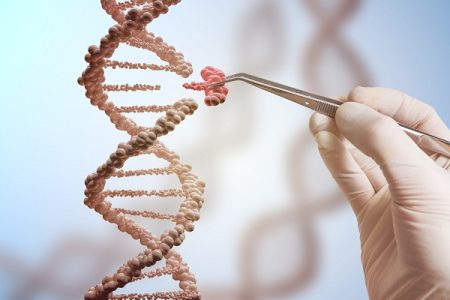A Better Understanding of DMD Helped Improve Survival Rates
- Updated on: Jul 24, 2024
- 3 min Read
By
- Published on Dec 7, 2018

Duchenne muscular dystrophy (DMD)
Duchenne muscular dystrophy (DMD) is an unusual, sex-linked hereditary disorder that largely affects young boys. It usually develops at the onset of early childhood and may cause muscle diseases which gets worse over time and ultimately develops progressive cardiac and respiratory failures.
Advancements in recent researches have seen hopeful scientific progress in regard to new therapeutic approaches of which a large number are currently being evaluated in clinical trials. With time, enhancement in healthcare and admittance to new treatments are changing the expected course of Duchenne muscular dystrophy (DMD), from a persistent progressive illness responsible for death in teenage years to a more fatal illness with an improved quality of life and increased life expectancy.
Gearing the need of dystrophin protein
A mutation in the DMD gene in Duchenne leads to either an entire absence of the dystrophin protein being formed by that gene or the partial production of functional dystrophin protein. Some potential treatments are expected at encouraging the production of a functional dystrophin protein.
Recommended Reading:
How Duchenne Affects Life of Both Caregiver and Patient?
Muscular Dystrophy Life Expectancy: Prognosis and Outlook
Exon skipping mechanism
An exon is a part of the gene that contains the particular information required to encode a specific protein. DMD may develop when one or more exons are missing from the gene. The loss of exons disturbs the sequence strand compatibility and as a result, the cell fails to produce a functional dystrophin protein. One possible curative approach is to mask an exon close to the site where the others are missing so that the remaining exons can join together. This allows the cell’s protein-making machinery to produce a shorter, but still functional, dystrophin protein under a treatment method referred to as exon skipping.
Reading of Stop codon
A mutation may lead to premature protein production due to the harmful effect on stop codon. The deficiency of normal protein is then destroyed by the cell. Some of the therapeutic approaches are being developed to force the cell’s protein-making machinery to overlook the premature stop codon that often appears in the DMD gene and maintain the production of the complete length dystrophin protein.
Utrophin in treating DMD
Utrophin is an autosomally encoded homologue of dystrophin that is thought to be able to fulfill dystrophin’s role in protecting muscle cells from damage during contractions and maintaining their integrity. Researchers believe that utrophin modulation could be an effective way for DMD treatments.
Biglycan (TVN-102) is a utrophin modulator being developed for DMD patients. Biglycan showed positive results from pre-clinical studies in mouse models of DMD and the results have been published in the journal Human Gene Therapy in 2017. Soon it will be tested in clinical trials and may help in DMD treatments.
More: Gene Therapy for Duchenne Muscular Dystrophy
Genome Editing
CRISPR/Cas9 is a genome-editing technique which is being examined as a DMD therapy. Ongoing research aims to repair the mutation in a patient’s muscle cells so that normal functional dystrophin protein can be obtained. This CRISPR/Cas9 technology has not reached human clinical trials stage till date. If these clinical trials are successful, it can be a great helping hand for duchenne patients.
Muscle growth promoters
Some of the promising therapies intend to uphold muscle growth to fight the weakening seen muscular dystrophy patients. For example, myostatin inhibitors therapy plays an important role. Myostatin is a protein that normally checks the growth of muscle cells. In DMD patients, blocking myostatin activity may increase muscle strength and mass. Myostatin inhibitors currently in clinical trials for Duchenne muscular dystrophy include domagrozumab (PF-06252616) by Pfizer and BMS-98609 by Bristol Myers Squibb.
These therapeutic approaches are particularly encouraging new treatment methods for DMD patients, and experiences built in the muscular dystrophy field are likely to benefit in the development of new therapies for other rare diseases as well which will improve overall quality of life of patients suffering with these diseases. The understanding of DMD better has helped us build new treatment options, which resulted in improved survival rates and prognosis for the disease over last few years.












